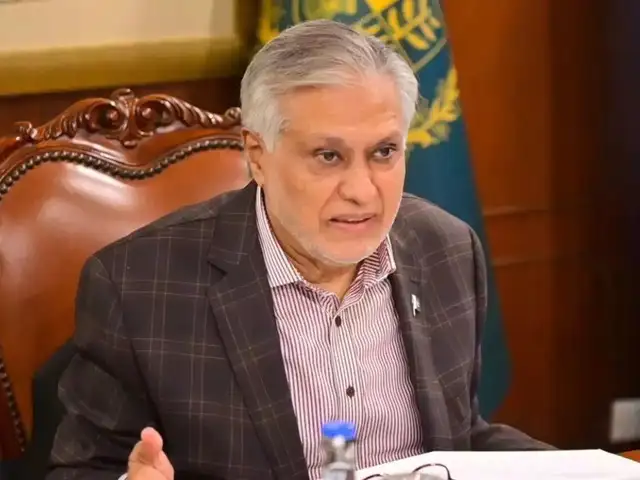Deputy Prime Minister and Foreign Minister Senator Mohammad Ishaq Dar on Friday declared that Pakistan has entered “one of the most active phases in its recent diplomatic history,” unveiling a string of high-level engagements and policy initiatives aimed at restoring the country’s global standing.
At a detailed media briefing at the Foreign Office, Dar laid out Pakistan’s foreign policy priorities—anchored in regional peace, trade revival, global connectivity, and principled international advocacy—while recounting his high-stakes visits in July and August.
The foreign minister highlighted Pakistan’s presidency of the UN Security Council in July, during which it chaired multiple sessions, including a meeting on Palestine. “A unanimous resolution calling for peaceful conflict resolution was adopted under Pakistan’s leadership—this was a diplomatic milestone,” he said.
Dar also reaffirmed support for Palestine, citing his participation in the France–Saudi Arabia co-hosted international conference and the OIC Emergency Foreign Ministers’ Meeting in Jeddah on August 25, where Pakistan categorically rejected the “Greater Israel” plan, terming it “illegitimate and unacceptable.”
He disclosed Pakistan’s quiet diplomacy during the Iran–Israel conflict, stressing that “sincere engagement” helped defuse tensions. “Iran acknowledged Pakistan as a true friend—the Iranian parliamentarians even chanted ‘Shukriya Pakistan’ in their parliament. That speaks volumes,” he added.
Turning to regional outreach, Dar described his August 20 trilateral talks in Kabul with Afghan and Chinese counterparts as “productive and strategic.” The dialogue covered refugees, border security, trade, and infrastructure, culminating in an agreement on the Pakistan–Afghanistan–Uzbekistan railway. China, he confirmed, also agreed in principle to extend the China–Pakistan Economic Corridor (CPEC) into Afghanistan.
In Bangladesh (August 23–24), Dar held rare full-spectrum discussions with leaders across the political divide, including the Bangladesh National Party (BNP) and Jamaat-e-Islami. The visit saw the signing of six MoUs, ranging from visa waivers and trade cooperation to cultural exchanges. He also pushed for reviving SAARC, noting Dhaka’s support but citing “one state’s resistance” as a lingering obstacle.
During his UK visit (August 17–19), Dar met Deputy Prime Minister Angela Rayner, members of parliament, and the Commonwealth Secretary-General. At the Pakistan High Commission in London, he launched major diaspora services including digitized Punjab land records and a new one-window passport system. He also announced the lifting of UK flight restrictions on PIA, with flights to Manchester resuming in September, following the earlier removal of the EU ban in November 2024. A UK–Pakistan Business Advisory Council was also launched to enhance bilateral trade and investment.
Dar detailed his Washington engagements on July 28, where he met US Secretary of State Marco Rubio for what he called a “frank and constructive” dialogue. He also addressed think tanks such as the Atlantic Council, clarifying that his remarks on judicial independence were misinterpreted by political opponents. “The judiciary operates independently in Pakistan. Twisting English remarks for political mileage is unfortunate,” he said.
Looking ahead, Dar announced that Pakistan and China will celebrate 75 years of diplomatic relations in 2026, with major cultural and economic events planned. He pointed to China’s expanding interest in Pakistan’s agriculture, mining, and industry, and confirmed that 1,000 Pakistani graduates are being sent to China for advanced agricultural education. He reiterated Pakistan’s firm commitment to the “One China Policy,” noting Beijing’s consistent support for Pakistan on Kashmir.
Summing up, Dar said Pakistan is no longer passive on the world stage: “We’re not just reacting—we are shaping regional conversations and global dialogues. Our foreign policy is rooted in principle, backed by experience, and aligned with the aspirations of the Pakistani people.”




